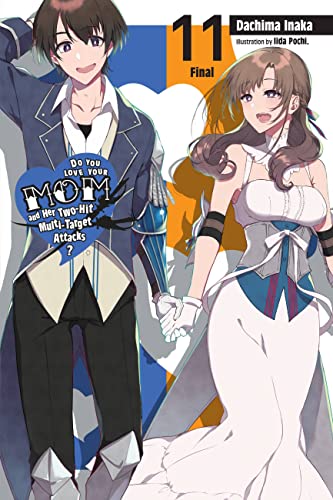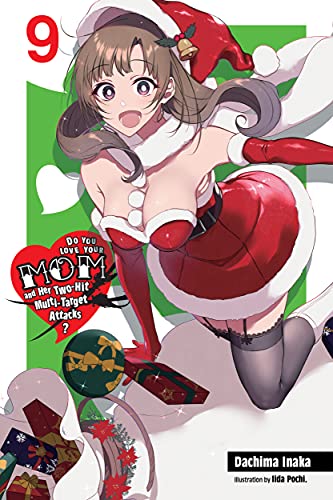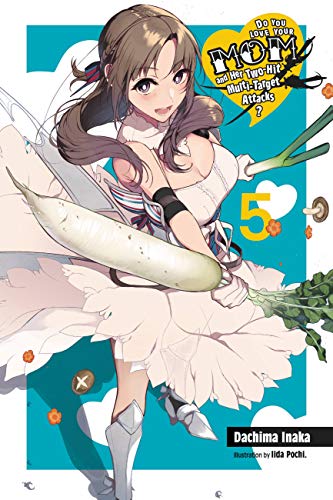By Dachima Inaka and Iida Pochi. Released in Japan as “Tsujo Kogeki ga Zentai Kogeki de Ni-kai Kogeki no Okasan wa Suki desu ka?” by Fujimi Fantasia Bunko. Released in North America by Yen On. Translated by Andrew Cunningham.
Sometimes you need to be careful not to read too much into “this character is overpowered an perfect”, even in a light novel. We’ve spent ten volumes so far watching Mamako and Masato, and honestly it has felt like most of the growth has been on his end. He’s a teenager, after all. That said, the game that we’ve been watching has not been entirely for children to mature and learn to get along better with their mothers, it’s also been showing us some pretty awful mothers. From Wise’s selfish mom to Mehdi’s education mom to Porta’s workaholic mom, each of these mothers has shown us that equal work needs to be done on both ends to repair the relationship. As such, it should not be too much of a surprise that we get to the final volume, which is supposedly about Masato facing off against his father the Demon Lord, only to realize that Mamako has been the real final boss all along.
The reason for the appearance of Masato’s dad (who works for the government) is that the beta is over, and it’s time to stop playing the game and go back to the real world. But first, there are a few hurdles to be overcome. The game ‘resets’ itself somewhat, first by having to get everyone to re-register their roles (fortunately for Masato, no one else really wants to be the Hero); then by erasing the memories of most of the supporting cast, in order to make Masato’s task harder. But he’s matured, something he shows off quite well in the first half of this book. A little too well – not only are Wise and Mehdi disturbed that a Masato who’s not pathetic might actually be… attractive to them, but Mamako is realizing that she’ll soon be unable to be a mom for him 24-7… and she hates that, however much she might pretend otherwise.
So yes, Mamako *is* one of the mom stereotypes we mentioned before. She’s the smothering mom. We’ve seen this throughout the series – the gag is that the game revolves around her and that he’s unable to do anything himself. But slowly, as the books have gone on, he’s managed to take more of a role in deciding what to do and how to solve things. He’s growing up. High school and college are around the corner. And then he’ll move out, marry Wise/Mehdi/whoever (Porta, thankfully, is left in the little sister role), and Mamako won’t have her baby boy around. The finale makes sense in a conceptual way – given the entire game has revolved around Mamako to date, she ends up literally becoming the game writ large… very large. But finally they are able to get through to her, and we end up with an epilogue that has everyone in reality dealing with the Mom game going into wide release.
Ignoring the joke ending that is basically “and the adventure continues…”, this was far more solid than it had any right to be. The series should have ended several volumes ago, but at least it mostly stuck the landing.










